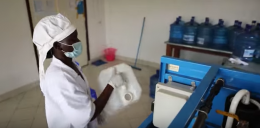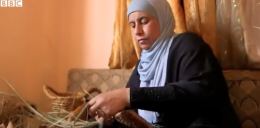Milk for transformation
I get excited when I hear of projects that bring a ‘win’ at every level. I have previously reported on the Milk for Transformation enterprise in Burundi. This business provides rural families with milk-producing cattle which both provides income from the surplus which can be sold and also removes the need for children to miss school to tend the less productive local cows as they wander the hills. It also employs young men to transport the milk to the city, others to pasteurise the milk, and yet others to sell the milk at the lowest possible price. Finally good nutritious milk reaches children in the slums: Win… Win … Win … Win …
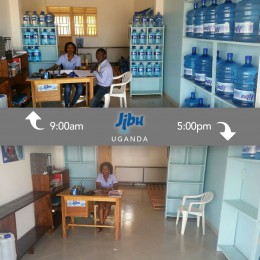 Jibu Water Project
Jibu Water Project
I have another friend, Randy Welsch, who, with his son Galen, has taken a similar ‘Win win’ approach with water. Billions of £/$ of aid have been poured into Africa over the decades with a high level of ineffectiveness. In the context of water, failure often occurs when a donor funds, say, a borehole. This may be ‘imposed’ on the local community who are grateful while it works but lack ownership when it requires maintenance and quickly revert to their former mode of accessing water. An estimated 50% of such projects fail within 2 years.
Water is a major health issue. In the cities only the top earners can afford clean water while in rural situations access may require great inconvenience. A Kenyan friend of mine told me recently of people in his area who have to walk 33km to find water! They spend most of their time walking backwards and forwards to this source just to provide for their families.
Motivation: Charity and Business
The Jibu Water Project (Jibu= ‘the answer’ in Swahili) launched by Randy and Galen represents a new model of combining a charitable motive – to provide clean water, improve health, empower people – with sound business practice in which a profit must be made to ensure continuity and growth. Sustainability is not sufficient. Growth comes through self-propagation.
Franchise
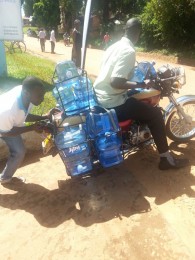 A franchise model has been created where a local entrepreneur is taught to use a small purification plant (standing about 6ft high on a 3ft x 3ft base) to cleanse water and then sell or deliver it from that location. The plant is provided as an investment by western investors who receive a yield from their investment. Part of the early profits from each local budding entrepreneur seed-funds the next franchise. The franchisees are trained and overseen by Jibu staff. The model relies on a high level of integrity in the people who must be well motivated and trustworthy.
A franchise model has been created where a local entrepreneur is taught to use a small purification plant (standing about 6ft high on a 3ft x 3ft base) to cleanse water and then sell or deliver it from that location. The plant is provided as an investment by western investors who receive a yield from their investment. Part of the early profits from each local budding entrepreneur seed-funds the next franchise. The franchisees are trained and overseen by Jibu staff. The model relies on a high level of integrity in the people who must be well motivated and trustworthy.
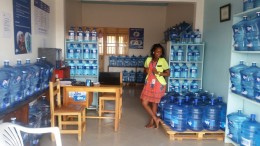 Evidence based success
Evidence based success
Since launching the project in 2012 over 150 franchises have been set up in 3 nations in East Africa. New franchises are now being launched at the rate of one per week. Each franchise typically provides 3000 litres of clean water per day.
The entrepreneurs and customers tell their own stories… (click on picture)
…and a recent BBC news item:
For further information contact info@jibuco.com

